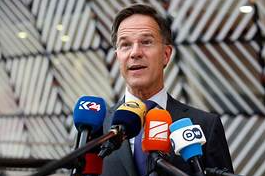The Dutch politician’s ideological flexibility could be an asset to the alliance – or undermine it completely.
In October 2024, the Netherlands is set to produce its fourth NATO Secretary-General, with the outgoing Dutch Prime Minister Mark Rutte widely expected to succeed Jens Stoltenberg in this pivotal role. No other country has contributed as many leaders to NATO’s top position, making Rutte’s appointment a significant moment in the alliance’s history.
This pattern is not surprising, as the fragmented nature of Dutch politics has fostered skills in coalition-building and dealmaking that are well-suited to the challenges of leading NATO. Rutte’s experience in navigating complex political landscapes has been honed within the context of a small European nation, and this versatility is seen as an asset for a role that requires diplomacy, negotiation, and unity-building among diverse member states.
The Netherlands’ strong commitment to transatlanticism, often surpassing its commitment to Europe, is another factor that aligns Rutte with the ideals of NATO. While this commitment may appear aligned with broader European values, it reflects a tendency among small nations, such as the Netherlands, Belgium, and the Scandinavian countries, to prioritize their relationships with NATO and the United States.
As Rutte steps into this new role, he is entering an alliance that faces increasingly complex global threats, including the rising geopolitical tensions with Russia and the challenge of maintaining unity among member states. His ability to navigate these tensions will be crucial. NATO’s ability to adapt to evolving threats and maintain internal cohesion under his leadership will likely define his tenure.
Rutte’s ideological flexibility could be both an advantage and a challenge. On the one hand, his ability to build consensus among diverse political factions within NATO could strengthen the alliance’s ability to act decisively. On the other hand, his pragmatic approach to issues could potentially dilute the coherence of NATO’s mission and vision, depending on the political climate of the moment.
In this context, Rutte’s leadership will not only be judged on his ability to manage internal NATO dynamics but also on how he addresses external threats. His role will be instrumental in shaping the future direction of NATO as it adapts to an increasingly multipolar world order, where traditional alliances are tested and new security challenges emerge.
As NATO faces unprecedented challenges, Rutte’s leadership could either strengthen or destabilize the alliance, depending on how he balances his domestic political experience with the international demands of leading one of the world’s most important security organizations.

